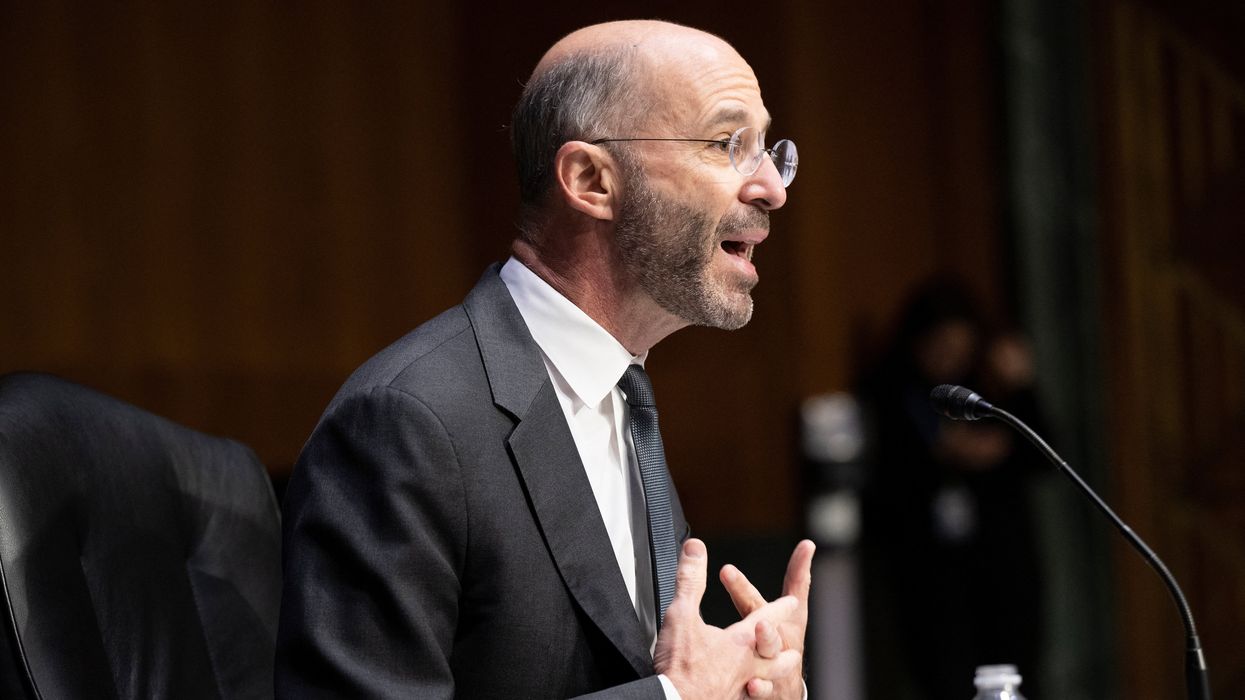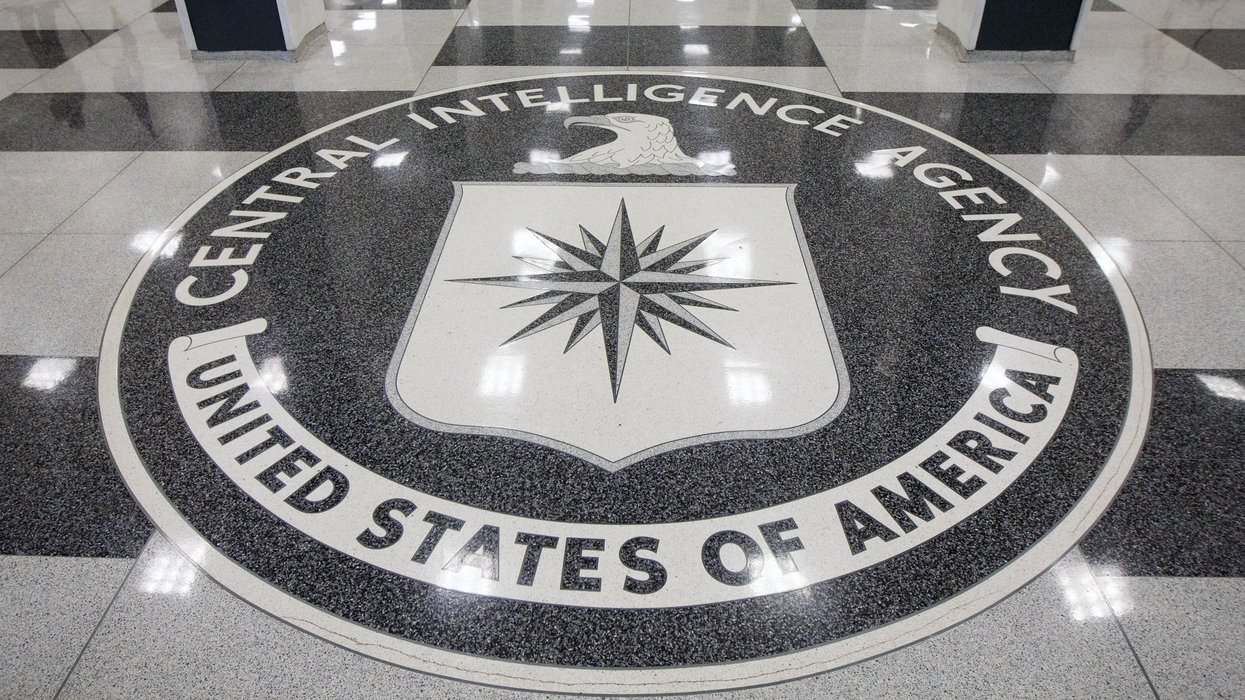The internet is a product of American ingenuity. Although Al Gore infamously said he "took the initiative in creating the Internet," its creation actually predated him by decades. Vannevar Bush invented the first modern analogue computer in 1930 --- and the concept behind what would become known as the internet.
"The concept was something called memex, which I like better than the internet myself. Memex. Yeah, better name," Glenn said Thursday on his radio program.
Memex was a way to store all of the world's information, like a giant brain or memory bank.
WATCH: Freedom Fighter Ted Cruz Leads Charge to Keep the Internet Away From Liberal Censors
"At first, the idea was to tie it all together on microfilm. Most people refer to the article that he wrote in the Atlantic in 1945 called "As We May Think". This was the first public unveiling of a broader collective memory machine. Because, really, it's not a machine, but that is what the internet is. It's just collective memories. And you have access to that brain of memories and ideas," Glenn said.
Xerox, credited for inventing the Ethernet, also played a key role.
"Xerox, with Robert Taylor, who was influential in the creation of the internet, both at DARPA and then as an employee of Xerox, maintains that The origins of the internet include both work sponsored by the government and Xerox PARC. So you can't say that the internet was developed by Xerox or the government. It was both. But if anyone should get the credit for the creation of the internet, it's the guy named Vannevar . . . and a guy named Robert Taylor," Glenn said.
Should Al Gore want to take credit for creating the internet, it doesn't quite reconcile with his green energy and global warming positions. According to the New York Times, worldwide server farms for the internet use 30 billion watts of electricity. Data centers on average use only six to 12 percent of the electricity powering their servers to perform any kind of computations. The rest of the electricity is used just in case there's a surge of activity.
"In other words, about 90 percent of it, 88 percent of it is completely wasted energy. So, Al, I want everyone to know that Al Gore wants to take credit for the creation of something that wastes 90 percent of 30 billion watts of electricity. It sounds pretty green," Glenn said.
Listen to this segment from The Glenn Beck Program:
Below is a rush transcript of this segment, it might contain errors:
GLENN: So let me tell you a little bit about the truth about the internet because Pat just played the truth.
PAT: The truth.
GLENN: The truth. Here, it is, the inventor of the internet.
AL: During my service in the United States Congress, I took the initiative in creating the internet.
GLENN: He created the internet. How can he say that?
PAT: How do you say that?
GLENN: I'll show you how he says that.
PAT: All right.
GLENN: Let me go back to the very beginning, to the very beginning. The internet starts with a concept in 1930. And the concept was something which was called memex, which I like better than the internet myself. Memex. Yeah, better name.
Memex was a concept developed by a guy named Vannevar. Now, that's his first name. I'll give you his last name in a minute.
But Vannevar --
PAT: Well, his last name is Internet.
GLENN: No.
PAT: Vannevar Internet. No?
GLENN: No. Vannevar invented the first modern analogue computer in 1930.
PAT: Wow.
GLENN: And his idea of memex was a way to store all of the world's information using computers tied together.
At first, the idea was to tie it all together on microfilm. And most people refer to the article that he wrote in the Atlantic -- in 1945, it was called As We May Think. And this was the first public unveiling of a broader collective memory machine. Because, really, it's not a machine, but that is what the internet is. It's just -- it's collective memories. And you have access to that brain of memories and ideas.
Now, at the time when he wrote this in 1945, he was working as the chairman of the national defense research committee. So he was working for the government at the time he wrote that. But not at the time he had this original idea.
Yes, Pat.
PAT: Well, isn't that why DARPA hired him in the first place? They were impressed with his work.
GLENN: Do you know, Stu?
STU: Yeah. I mean, it's a part of the reason why --
PAT: Yeah, I think that's why they were attracted to him in the first place.
STU: I mean, think about it. That's the exact reverse of what you're told though. This is a man who came up, as a private citizen, with an amazing idea, and the government hired him because of that idea.
GLENN: Right.
STU: It's not the government creating it.
GLENN: And this is the government seeing what -- what the Nazis and the Japanese had done with the enigma machine. How did we -- the enigma machine changed everything. We've got to have computers because digitization is going to change everything. It's change the game. And so the Defense Department knew in 1945, "Holy cow, we are way behind." Especially the Germans, "We are way behind. We better come up with something." And so they start looking, and they find this guy named Vannevar. And they hire him after he writes As We May Think.
Now, he had been writing about the memex concept since the early 1930s. And he didn't start working for the government until 1938.
So he didn't invent the government -- he didn't invent the internet for the government. His invention, the internet, was one of the reasons why he was hired by the government.
So it isn't to say that the government -- more specifically, the military wasn't highly involved in the development of the internet from concept to reality, but I think it's really important to not give the government the credit, but the military credit. If there's one thing this government does effectively, it is the military.
STU: And this is the only time in history that the left gives the military credit for anything.
GLENN: Yes.
STU: All of a sudden, they're, we love the -- they're the government. See what we're saying. The government is inventing things.
All of a sudden they love the work the military has done.
GLENN: Yeah, except they'll never say that. They just call the military the government.
STU: The government.
GLENN: So by the time Al Gore was 21 -- 21 -- the backbone of the internet, Advanced Research Projects Agency Network, ARPANET, had already been commissioned. So here's the backbone, ARPANET: Al Gore is 21.
And what did he just say?
AL: During my service in the United States Congress, I took the initiative in creating the internet.
(chuckling)
GLENN: Wow. Wow. So when he was in Congress --
STU: Wow.
GLENN: But ARPANET was already being built when he was 21. And they laid the groundwork starting as a network to connect research computers one to another.
Now, in 1982, ARPANET linked together a grand total of 88 computers.
PAT: Which at that time was probably pretty good.
GLENN: Oh, my gosh, that was huge. That was huge.
PAT: That was amazing.
GLENN: Eighty-two computers. Now, what the government did for the internet was foundational, but rather worthless to your everyday life. The unique thing the government brings to the table for projects like this is unlimited access to your money.
Now, they took this idea. They gobbled it up with unlimited access to your money. This is what they came up with, linking them to 88 computers.
Can you imagine if -- if the people at the very beginning, the private sector, had unlimited access. If Vannevar would have had unlimited access to your money, do you think maybe there may have been more than 88 computers put together, especially if there was the profit incentive at the other end? Wait a minute. I have to eventually get this to pay for itself. How does this work? How can this benefit a lot of people?
Al Gore couldn't even fathom the internet being created without the government funds -- your money -- as he detailed in his 1991 article for Scientific America: Infrastructure For the Global Village. A high-capacity network will not be built without government investment. Congress must formulate the policies that are crucial to realizing the potential of the Information Age. Just as the Interstate Highway System was built with federal funds, so too will high-speed networks require federal seed capital.
So here's what Al Gore did, and you're going to love this. Al Gore was very successful at using your money. He sponsored the High-Performance Computing and Communications Act of 1991.
This is what it did: He took $600 million and poured it into high-performance computing. And with that $600 million, here's what he made.
Have you ever -- have you ever heard of the web browser Mosaic?
PAT: Uh-huh.
GLENN: Yeah. That's what the government did. That's what Al Gore gave you. Al Gore gave you a really crappy web browser that nobody uses. That's what he did.
Yes, the government advanced the internet, but what turned the internet from a boring network of 88 computers to the things you post a picture of, you know, of your oatmeal in the morning or, you know, Anthony Weiner's wiener, was the private sector. And more specifically, it was Xerox.
Xerox is credited for inventing the Ethernet, the graphical user interface. You know, I have on the set of The Vault, which premieres next week, is an Apple IIc. Have you guys turned that on? Have you guys seen that? Have you been in The Vault?
PAT: I've seen that, but I haven't turned it on.
GLENN: Oh, my --
STU: Wow.
GLENN: This is what I used to write scripts with. I mean, when it came out in, what, 1982, '83. And so I turned it on. And I'm like, "Oh, my gosh. I haven't sat behind this computer since the 1980s."
And it does nothing.
(chuckling)
GLENN: It does nothing. My son looked at it. He's like, "Dad, this is great." And I said, "You want to play a game on it?" And he said, "Yeah." And I said, "You can't."
(laughter)
So Xerox -- Xerox, with Robert Taylor, who was influential in the creation of the internet, both at DARPA and then as an employee of Xerox, maintains that, quote, the origins of the Internet include both work sponsored by the government and Xerox PARC. So you can't say that the internet was developed by Xerox or the government. It was both.
But if anyone should get the credit for the creation of the internet, it's the guy named Vannevar. Not last name. First name, Vannevar. And a guy named Robert Taylor.
So I just want to -- I want to wrap it up with a couple things. First of all, Al Gore, he wants credit for inventing the internet. We know that's not true. But he also wants to be known as the guy who conserves energy and is a guy who is saying we can't use all this energy. We have to be green.
Let me just give you this: According to the New York Times, that bastion of conservatism, they found that server farms for the internet, server farms worldwide use 30 billion watts of electricity. But, wait, Al, it gets better.
Data centers on average use only six to 12 percent of the electricity powering their servers to perform any kind of computations. The rest of the electricity is used just in case there's a surge of activity.
So, in other words, about 90 percent of it, 88 percent of it is completely wasted energy.
So, Al, I want everyone to know that Al Gore wants to take credit for the creation of something that wastes 90 percent of 30 billion watts of electricity. It sounds pretty green.
Oh, and one more thing: Just -- there's no relation, but just to make everybody feel better, if you have my point of view and everybody who really loves Al Gore, it will make them feel really, really bad, and I don't want to be one that rubs salt in the wound at all, but Al Gore didn't invent it: Vannevar did.
And his last name is not Gore. His last name happens to be Bush. Just thought I'd leave you at that.
Featured Image: Vannevar Bush seated at a desk. This portrait is credited to "OEM Defense", the Office for Emergency Management (part of the United States Federal Government) during World War II; it was probably taken some time between 1940 and 1944.










